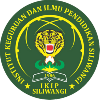EXPLORING SECONDARY STUDENTS' ENGAGEMENT OF THE COLLABORATIVE WRITING APPROACH TO LEARNING IN WRITING DESCRIPTIVE TEXT
Abstract
Student engagement encourages the advancement of writing skills, such as the ability to compose descriptive language. The evaluated students' writing abilities are determined by their behavioral, emotional, and cognitive engagement. However, the purpose of this study is to investigate and learn about the utilization of collaborative writing styles when completing descriptive writing. This study used the descriptive qualitative method and engaged six students in writing descriptive text in the group. The data was gathered through semi-structured interviews. To fill a gap in the research on student engagement in collaborative writing approaches. The findings show how collaborative writing approaches improve student involvement and help students overcome problems when producing descriptive writing. Furthermore, collaborative writing enhanced students' enthusiasm for creating descriptive texts as well as their ability to communicate with other students. As a result, students regard the complicated process of collaborative writing as challenging. Students' behavioral, affective, emotional, and cognitive skills are all enhanced as a result of collaborative writing. The other researcher discovered low affective engagement as a result of students' uncertainty regarding collaborative writing during the writing process of descriptive texts.
References
Archambault, I., Janosz, M., Morizot, J., & Pagani, L. (2009). Adolescent Behavioral, Affective, and Cognitive Engagement in School: Relationship to Dropout.
Braun, V., & Clarke, V. (2006). Using thematic analysis in psychology. Qualitative Research in Psychology, 3(2), 77–101. https://doi.org/10.1191/1478088706qp063oa
Chen, W. (2022). Revisiting Proficiency Pairing in Collaborative Writing From an Equity Theory Perspective: Voices From High-Proficiency EFL Learners. SAGE Open, 12(2). https://doi.org/10.1177/21582440221087267
Christenson, L., S., Reschly, L., A., WYLIE, CATHY, & Widiasani, A. (2012). Handbook of Student Engagement.
Connell, J. P., Usinger, P., Halpem-Felsher, B. L., Clifford, E., & Crichlow, W. (1995). Hanging in There: Behavioral, Psychological, and Contextual Factors Affecting Whether African American Adolescents Stay in High School. Journal of Adolescent Research, 10(1), 41–63. https://doi.org/10.1177/0743554895101004
Farizka, N. M., & Cahyono, B. Y. (2021). Faculty members’ strategies to foster students’ learning engagement in writing class. Journal on English as a Foreign Language, 11(1), 175–196. https://doi.org/10.23971/jefl.v11i1.2478
Fredricks, J. A., Blumenfeld, P. C., & Paris, A. H. (2004). School Engagement: Potential of the Concept, State of the Evidence (Vol. 74, Issue 1).
Harmer, J. (2004). How to Teach Writing (pp. 1–212). Longman.
Khatib, M. (2015). Languaging and Writing Skill: The Effect of Collaborative Writing on EFL Students’ Writing Performance. Advances in Language and Literary Studies, 6(1). https://doi.org/10.7575/aiac.alls.v.6n.1p.203
Krishnapatria, K., Kurniati, N. I., & Saefullah, H. (2019). Engaging Students in Writing Recount Text through Google Maps. Studies in English Language and Education, 6(2), 199–211. https://doi.org/10.24815/siele.v6i2.13966
Mulligan, C., & Garofalo, R. (2011). A collaborative writing approach: Methodology and student assessment.
Oshima, Alice., & Hogue, Ann. (1999). Writing academic English. Longman.
Prasetyawati, O. A., & Ardi, P. (2020). Integrating Instagram Into Efl Writing To Foster Student Engagement. In Teaching English with Technology (Vol. 20, Issue 3). http://www.tewtjournal.org
Thabran, Y., Efriza, D., & Heryanti, R. (2021). Making Sense of Collaborative Writing: A Student-Experience-Based Perspective. Scope : Journal of English Language Teaching, 5(2), 113. https://doi.org/10.30998/scope.v5i2.8549
Wahab, I., & Aisyah, S. (2022). Scope of English Language Teaching, Literature and Linguistics Program Studi Pendidikan Bahasa Inggris FKIP Universitas Muslim Analyzing Students’ Engagement in Online Learning Environment. 5(2), 101–113. https://ejournals.umma.ac.id/index.php/seltics
Yin, R. K. (2017). Case Study Research and Applications. Sixth Edition.
Downloads
Published
Issue
Section
License

This work is licensed under a Creative Commons Attribution-ShareAlike 4.0 International License.











